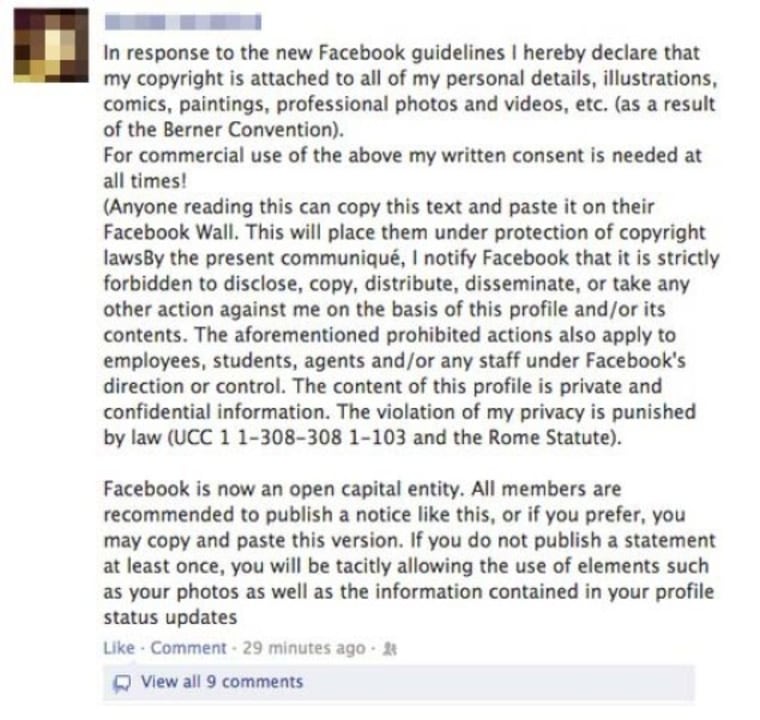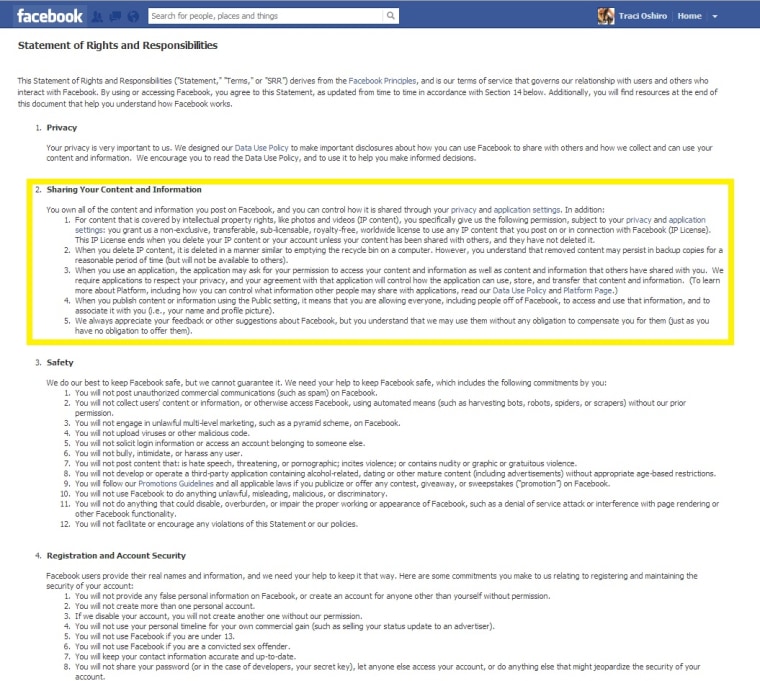In case you missed The Cycle on Tuesday, you may also have missed the news that Facebook rules are changing…again.
The Facebook democracy is on the brink and in fact may just fall. In 2009, Facebook introduced a voting system enabling users to vote on site governance (e.g. data policy, terms of use and statement of rights and responsibilities) and, from what I understand from Mike Isaac’s article for All Things D, “requires 30 percent of its user base to vote to block any proposed site changes. .. That’s 300 million people, or just under the total population of the United States.”
To be a negative realist, chances are that the 2009 imposed voting system is done with. Not only that, but Facebook is also proposing access to share the information you put up with Instagram (acquired by Facebook on Sept. 6) in addition to altering the direct messaging function, taking away your ability to decide who is allowed to contact you.
Understandably concerned Facebook users were sent into a panic. You may have seen a few posts resembling this graphic on your newsfeed:

You can like, poke, tweet, or repost all you want about your concerns regarding privacy on Facebook. Just know your actions are all in vain as your personal information has already become a part of a data-sharing network with the numerous other Facebook owned properties.
But you signed up to put your information, photos and biography on the world’s largest and most popular social networking matrix. Have you ever fully read the Facebook privacy rules and application settings? Let’s re-examine:

Yes, it is unfortunate that our ability to vote and in some 7 degree of separation way control the policies of the world’s largest social networking site. However, rather than complain about privacy issues and settings on Facebook there is another way to prevent your personal data from being passed along. The answer? Stop uploading your entire life onto Facebook. Simple.
If you are as concerned as the thousands that posted the useless ‘copyright infringement’ statement then you should be more vigilant of the content you share with the website. The self-gratuitous nature of Facebook has millions addicted to sharing information of their lives at the simple click of a button, but what many forget is that Facebook really isn’t trying to pull anything over your eyes in regards to sharing your information.
By signing up to Facebook, you willingly agree to have your privacy infringed upon. After all, it is not Facebook that is uploading your date of birth, college, place of work or baby, high school and going out photos. It is you.